Memphis
Let’s Learn About: Asylees
We are reflecting this month on Independence Day and the freedom that has attracted people to the United States. At World Relief Memphis, we often reflect on America as a country of immigrants and displaced persons. Throughout the generations, people have immigrated to the U.S. and established new lives. That continues today!
Asylees are just one of these immigrant groups.
The amount of competing information around immigration can be overwhelming. But World Relief has been welcoming immigrants in partnership with churches and compassionate individuals like you since the 1970s, and for over 10 years here in Memphis!
World Relief Memphis specifically assists those who are seeking safety through various pathways established by the United States Government. In this five-part series, with help from our Initial Welcoming Services and Newcomer Outreach Service teams, we will be sharing the various different legal pathways to the U.S., how those pathways began, how we come alongside new arrivals, and how you can join us in welcome.
Background
The history of asylum began when refugee resettlement laws started to form in the mid to late 1900s. Under the Refugee Act of 1980, the United States created legal obligations to provide protection to those who qualify as refugees (State Dept.). That means that Asylum seekers prove the exact reasons for persecution as a refugee and cannot return to their home country due to past or well-founded fear of future persecution “on account of race, religion, nationality, membership in a particular social group, or political opinion.”
The difference about asylum seekers is that protection is granted to those “already in the United States or arriving at the border” who can prove their fear of persecution. (American Immigration Council). Another critical point is that not all asylum seekers are granted asylum.
The U.S. Asylum Process
The asylum process is complicated, but the more we learn, the better neighbors we can be for our immigrant brothers and sisters. Let’s break it down by going over the key points:
- All asylum cases are handled by the USCIS, such with all other immigration pathways to the United States.
- The U.S. admits around 25,000 asylees each year, but currently there is no limit set by the government.
- An asylum case begins when a person seeking asylum arrives at a U.S. port of entry:
- Border crossing
- Airport
- Seaport
- Once at an entry point, there are generally 2 types of cases the person will fall under:
- Affirmative Asylum: This is known as a “regular” asylum case. This is where the applicant is present in the United States and can apply at any port of entry by filling the official application for asylum and withholding of removal or deportation. The applicant then goes into a series of interviews to prove their case.
- Defensive Asylum: This term references when removal proceedings have already begun. “The applicant is asking for the government to reverse its decision to deport and allow them to remain in the United States via asylum. An immigration judge makes a decision independent of any previous decision by USCIS.”
- Proving an asylum case is a long process in itself, as they must provide evidence they can show to a court or the asylum officer conducting their interview.
- While this process is happening, asylum seekers also undergo a USCIS biometrics appointment to be used in their extensive background checks and security screenings.
- If their case is approved then the person or persons on the case can now reside in the U.S., receive work authorization, and have access to healthcare.
- It is important to note that some asylum seekers are allowed to reside in the U.S. while their case is being processed. Some asylum seekers are also granted work permits as well before official case approval.
- After one year, an asylee may then continue on the path of citizenship and apply for permanent residence (green card).
What We Do
World Relief Memphis currently works with those who have approved asylum status, not asylum seekers. This is because we do not offer Immigration Legal Services at our particular office. Until an asylum case is approved, asylum seekers do not yet qualify for the benefits provided to refugees.
Since the asylum approval process can vary in length, by the time their case is approved, many asylees are already well established in their life in the U.S. At our office, the main areas we serve asylees are in our extended case management services:
- Economic Empowerment: aids in job readiness, application process, and placement.
- Holistic Support Services: aids clients in health and wellness goals, especially clients with additional vulnerabilities.
- Refugee and Immigrant Youth Services: provides school enrollment services, group mentoring, and one-on-one mentoring where refugee and immigrant youth learn how to set and meet goals in their personal, school, and post-school life.
- The Connect Language Center: English as a Second Language (ESL) program open to program participants and the general public. Here students are enrolled in ESL classes of varying levels depending on starting knowledge.
How You can Help
The immigration system is broken and it can be overwhelming to learn about and know where you fit in. While we might be tempted to look away, the love of Christ compels us to turn toward the need — to consistently and lovingly step toward those who are hurting. If you’re like us, you’re asking yourself: How can I make a difference and create lasting change when the problems in the world are so big?
The good news is none of us has to take this journey alone. World Relief Memphis has been present and working in this city for the past 10 years and is equipped with 80 years of connections and expertise through the World Relief’s global network. We have been partnering with you, the local church and community to make Memphis a more welcoming community.
Here are 4 ways you can be a part of lasting change:
- Learn: One thing that asylees need while waiting for case approval is community. Learn how to walk alongside our newest neighbors using the World Relief Memphis Workshop! With courses to learn more about cross-culture friendships, reflections on biblical thoughts about immigration, and more!
- Advocate: You have a voice to change the immigration system for the better! Check out our Advocate page to see how you can share your voice on issues like the recent expansion of the Title 42 policy. This policy hinders individuals right to seek asylum, disregarding the terms of longstanding U.S. immigration law. Read more about what World Relief’s President and CEO, Myal Green, shares on the topic here!
- Volunteer: Want to walk alongside individuals and families here in Memphis? Check out our volunteer page to see what opportunity is right for you. You can do everything from apartment set ups, driving clients to ESL classes, mentoring refugee and immigrant youth, to being in a Good Neighbor Team where you get to welcome and walk alongside a refugee family for the first 6 months of their time in the U.S.
- Give: When you give to World Relief Memphis, whether it be once or monthly, monetarily or gift in kind, you are making a big difference in the lives refugees and other immigrants in vulnerable situations.
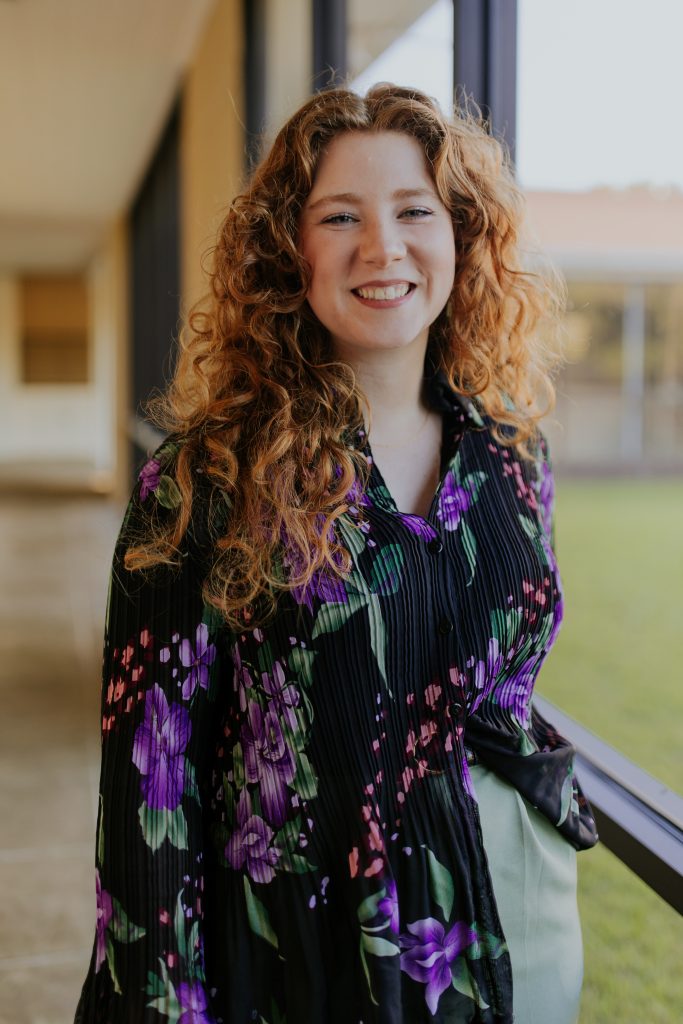
Writer: Kara Spencer
Communication Coordinator at World Relief Memphis, graduate of Harding University, & Memphis native.
If you would like to learn more about World Relief Memphis in the coming months, follow us on social media and sign up for our newsletter to stay up to date on events and volunteer opportunities.
If you are searching for an opportunity to begin making a bigger impact, join our new monthly giving program, The Path, for exclusive updates, virtual events, prayer chains, and stories of hope from the women, men, and children whose lives you change.
Let’s Learn About: Refugees
We are reflecting this month on Independence Day and the freedom that has attracted people to the United States. At World Relief Memphis, we often reflect on America as a country of immigrants and displaced persons. Throughout the generations, people have immigrated to the U.S. and established new lives. That continues today!
Refugees are just one of these immigrant groups.
The amount of competing information around immigration can be overwhelming. But World Relief has been welcoming refugees and other immigrants in partnership with churches and compassionate individuals like you since the 1970s, and for over 10 years here in Memphis!
World Relief Memphis specifically assists those who are seeking safety through various pathways established by the United States Government. In this five-part series, with help from our Initial Welcoming Services and Newcomer Outreach Service teams, we will be sharing the various different legal pathways to the U.S., how those pathways began, how we come alongside new arrivals, and how you can join us in welcome.
History
Refugees are one of the primary groups of people World Relief serves worldwide. To understand who they are and our role in the refugee resettlement process, lets take a look at World Relief’s history alongside legislation in the United States.
1940’s
1944 – The War Relief Commission of the National Association of Evangelicals (NAE) is founded in NYC for churches to address urgent humanitarian needs in war-torn Europe.
1948 – U.S. Congress enacts the “Displaced Persons Act of 1948” following the admission of more than 250,000 displaced Europeans from World War II (State Dept.).
1950’s
1950 – The War Relief Commission changes its name to World Relief Commission of the NAE
1950 – The United Nations establishes the High Commissioner for Refugees (UNHCR), also known as the UN Refugee Agency to “act as guardian of the 1951 Convention Relating to the Status of Refugees, which defines the legal protections for refugees” (USCIS).
1951 – The International Organization for Migration (IOM) was created. Originally called, “Intergovernmental Committee for European Migration,” as they were birthed from the migration crisis following WWII, IOM serves refugees in a similar capacity to the UNHCR (IOM).
1970’s
1972 – World Relief cares for 100,000 war-displaced people in Vietnam through it’s network of missionaries and church partners
1975 – World Relief provides food and medical care in Cambodia for refugees fleeing the Khmer Rouge genocide.
1979 – World Relief launches its refugee resettlement ministry through a network of church partners, helping Vietnamese boat people adjust to life in America. World Relief is the only evangelical agency authorized by the US State Department to resettle refugees.
1980’s
1980 – Congress passes the Refugee Act – “standardized federally-supported resettlement services for all refugees admitted to the United States” (State Dept.). The Act included the definition of refugee and gave instruction for “regular and emergency admission of refugees of all nationalities” (USCIS). It “provided the legal basis for the establishment of The Office of Refugee Resettlement at the Department of Health and Human Services.” This Act is establishes the annual Presidential Determination, setting the annual number of refugee admissions.
2000’s
2005 – The U.S. Citizenship and Immigration Services (USCIS) is created as a part of the Department of Homeland Security and “oversees refugee and asylum affairs” (USCIS). Their officers are “specifically-trained refugee officers who travel around the world to interview refugee applicants seeking resettlement in the United States.”
2012 – World Relief opens offices in Memphis to work with area churches and community partners to create a community of love and welcome for refugees.
*Want a more in-depth history of World Relief, immigration laws, and the resettlement process? Take our free workshop course here
The U.S. Refugee Resettlement Process
With that history, consider resettlement from the milestone of receiving official refugee status to arrival in the U.S.
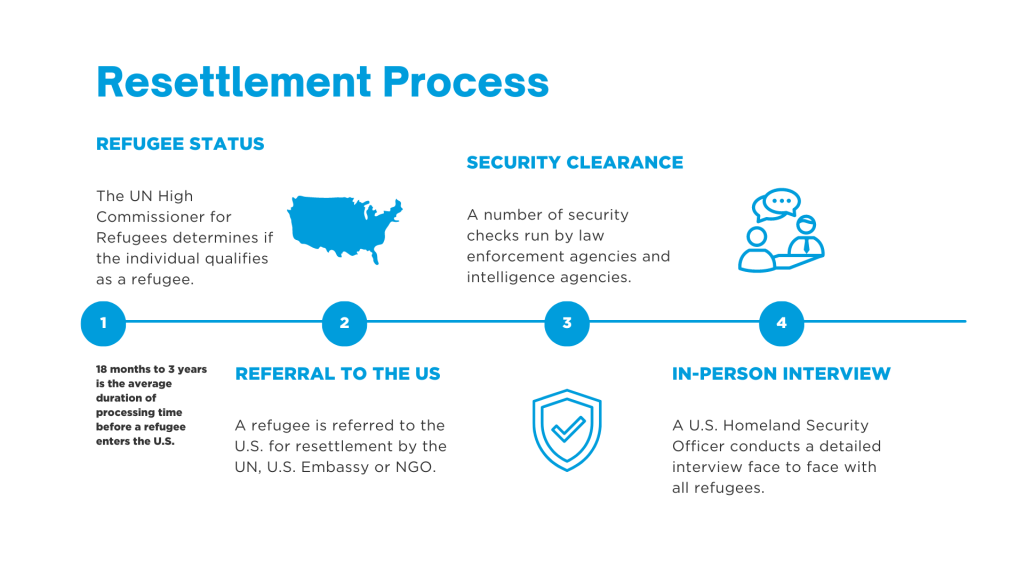
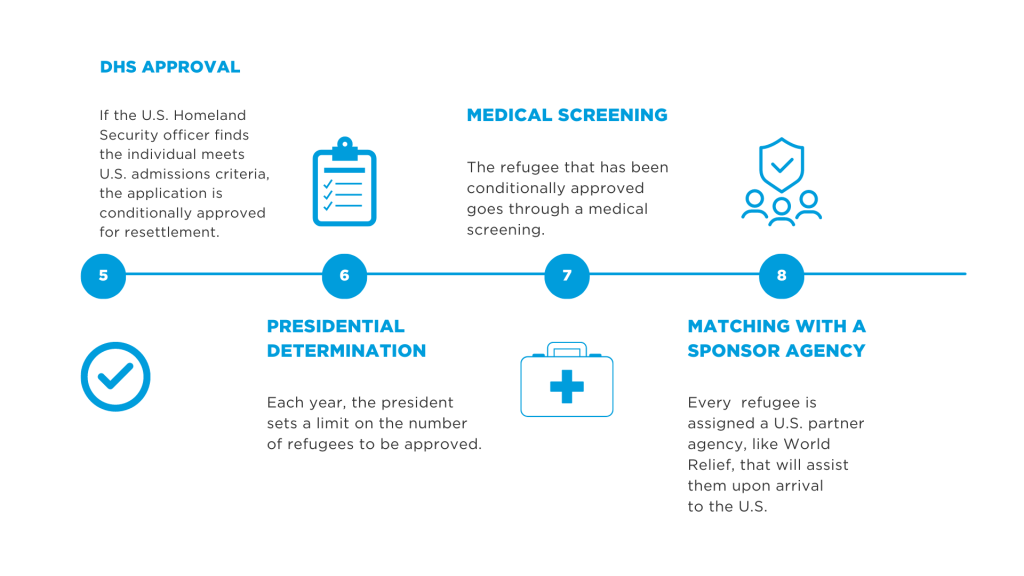
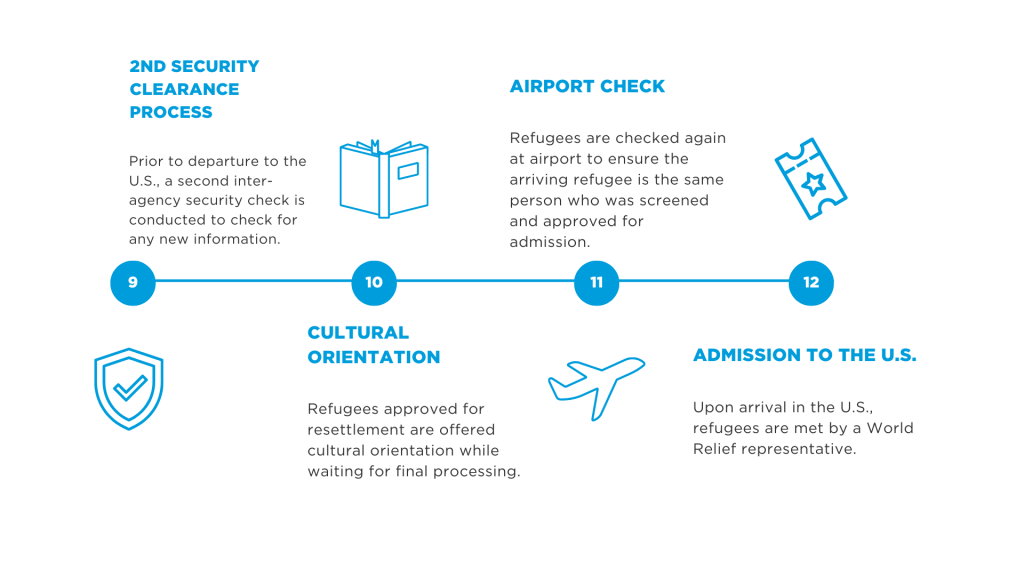
What We Do
Once a refugee is approved by the State Department, they are matched with a resettlement agency. World Relief Memphis is notified of a pending case through our Home Office and accepts the case.
In the days or weeks between this notification and the refugee’s arrival, our Initial Welcoming Services (IWS) team gets to work. A caseworker is assigned and is given access to the case specifics, including a general background of who is coming and if they have specific needs to be considered.
Simultaneously, our Church and Community Engagement staff is recruiting a volunteer Good Neighbor Team of 8-10 individuals to match with the new arrivals.
The caseworker then collaborates with our housing manager to find an apartment or rental house and with the volunteers, sets up the space with required necessities, sourced from donations or by purchasing through a portion of the incoming case’s Refugee Cash Assistance.
Arrival day is exciting! The Good Neighbor Team and IWS staff gather at the airport to provide a warm welcome and to celebrate this milestone. But over the next three months, there are many integration steps that individual or family must overcome. Our caseworkers aid their program participants in registering for their Refugee Cash Assistance, Social Security Card, Medicare, SNAP, and other elible government assistance programs. These programs are key for helping refugees in becoming self-sufficient.
Other vital steps in these first 90 days are the cultural orientation to the U.S., budget meetings reviewing travel debt, the currency system, and how to pay rent/ bills. The volunteer Good Neighbor Team is reinforcing these same principles as they go grocery shopping with a family, support budget planning, or help them practice talking with their landlord.
Once the initial 90 day period nears an end, clients may be matched with other volunteers and enrolled in eligible programs for extended case management:
- Economic Empowerment: aids in job readiness, application process, and placement.
- Holistic Support Services: aids clients in health and wellness goals, especially clients with additional vulnerabilities
- Refugee and Immigrant Youth Services: provides school enrollment services, group mentoring, and one-on-one mentoring where refugee and immigrant youth learn how to set and meet goals in their personal, school, and post-school life.
- The Connect Language Center: English as a Second Language (ESL) program open to program participants and the general public. Here students are enrolled in ESL classes of varying levels depending on starting knowledge.
How You can Help
The resettlement process is not a simple one, and it certainly doesn’t end at arrival. While we might be tempted to look away, the love of Christ compels us to turn toward the need — to consistently and lovingly step toward those who are hurting. If you’re like us, you’re asking yourself: How can I make a difference and create lasting change when the problems in the world are so big?
The good news is none of us has to take this journey alone. World Relief Memphis has been present and working in this city for the past 10 years and is equipped with 80 years of connections and expertise through the World Relief’s global network. We have been partnering with you, the local church and community to make Memphis a more welcoming community.
Here are 4 ways you can be a part of lasting change:
- Learn: There is always something to learn in the refugee resettlement world as we just displayed. World Relief Memphis has a Workshop with courses to learn more about cross-culture friendships with our newest neighbors, reflections on biblical thoughts about immigration, and more!
- Advocate: The immigration system is broken and you have a voice to change it for the better! Check out our Advocate page to see how you can share your voice on issues like passing the Afghan Adjustment Act, creating a just path to citizenship for Dreamers and other long-term immigrants, protections for Ukrainians, Asylum seekers, and more.
- Volunteer: Want to walk alongside individuals and families here in Memphis? Check out our volunteer page to see what opportunity is right for you. You can do everything from apartment set ups, driving clients to ESL classes, mentoring refugee and immigrant youth, to bring in a Good Neighbor Team where you get to welcome and walk alongside a refugee family for the first 6 months of their time in the U.S.
- Give: When you give to World Relief Memphis, whether it be once or monthly, monetarily or gift in kind, you are making a big difference in the lives refugees and other immigrants in vulnerable situations.

Writer: Kara Spencer
Communication Coordinator at World Relief Memphis, graduate of Harding University, & Memphis native.
If you would like to learn more about World Relief Memphis in the coming months, follow us on social media and sign up for our newsletter to stay up to date on events and volunteer opportunities.
If you are searching for an opportunity to begin making a bigger impact, join our new monthly giving program, The Path, for exclusive updates, virtual events, prayer chains, and stories of hope from the women, men, and children whose lives you change.
10 years of World Relief Memphis: Diana’s Story
Over the ten years World Relief Memphis has been in operation, we have had the privilege of serving hundreds of refugees, asylees, and other vulnerable immigrants. Last Fall, our office was able to connect with several clients about their journey to the U.S. and their experience with World Relief. Each interview was humbling and moving to hear. One of these such interviews was with Diana.
Diana grew up in a small mountain city in Venezuela. She recalled fondly, “Everyone in Venezuela always wants to go to my city because it is very beautiful. I love that place a lot.” In her home town, Diana was able to study accounting and eventually work as an accountant. She loved her life, but sadly it became more and more clear that she could not stay.
“For many years this has been happening in my country. There is a very bad political and economic situation, and an especially bad situation with persecution. So that pushed me to make the decision to come here for help.” She explained how her life at home rapidly fell apart. She had to quit her job and she didn’t feel safe in her own home let alone her country. After making the difficult decision to leave the home she loved, she began the process of filing for political asylum in the U.S.
“For many years this has been happening in my country. There is a very bad political and economic situation, and an especially bad situation with persecution. So that pushed me to make the decision to come here for help.”
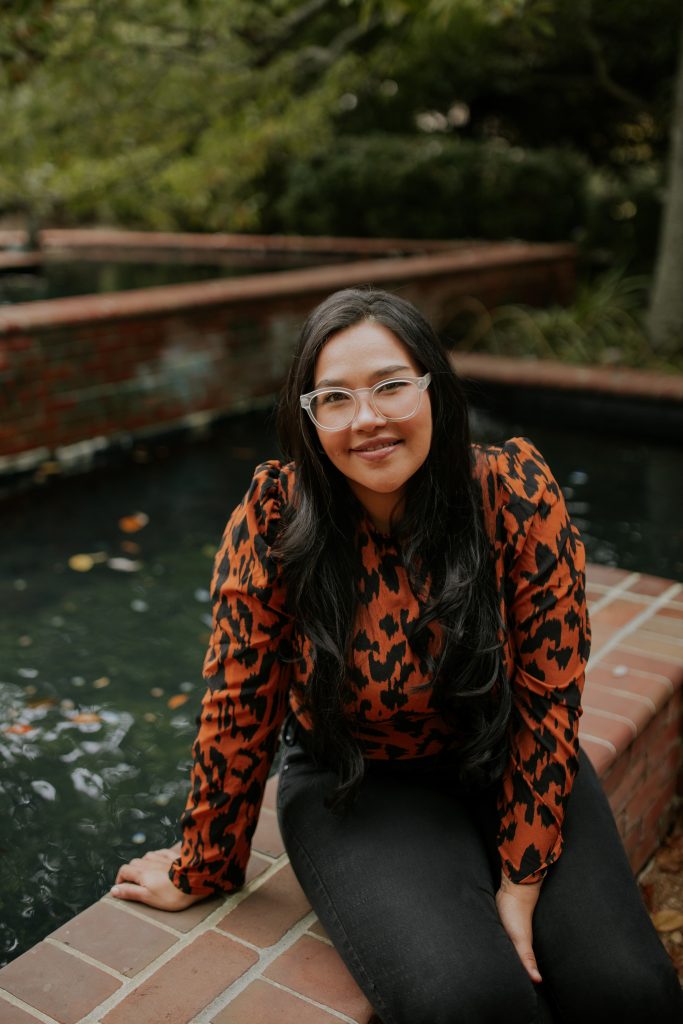
While waiting for the approval of her case, she found work as a cleaner. At the time, she did not know English and only had a small amount of money saved. With the job, she was able to save to pay for her papers and her asylum case was approved!
It has now been several years since Diana came to the States and the process for filing for asylum has become even more challenging. She reflected back and noted that, “I was very lucky because they helped me very fast.” She shared how she has seen many people wait many months or even years for approval, but she was approved swiftly and is still so grateful.
After her approval, Diana looked through her papers and saw information from a World Relief office. She reached out to them, but, while waiting for a response, she researched places where she could study English. That is when she found World Relief Memphis’ Connect Language Center. Already having some friends, family, and a church connection there, finding the CLC was the final decider in her moving to Memphis.
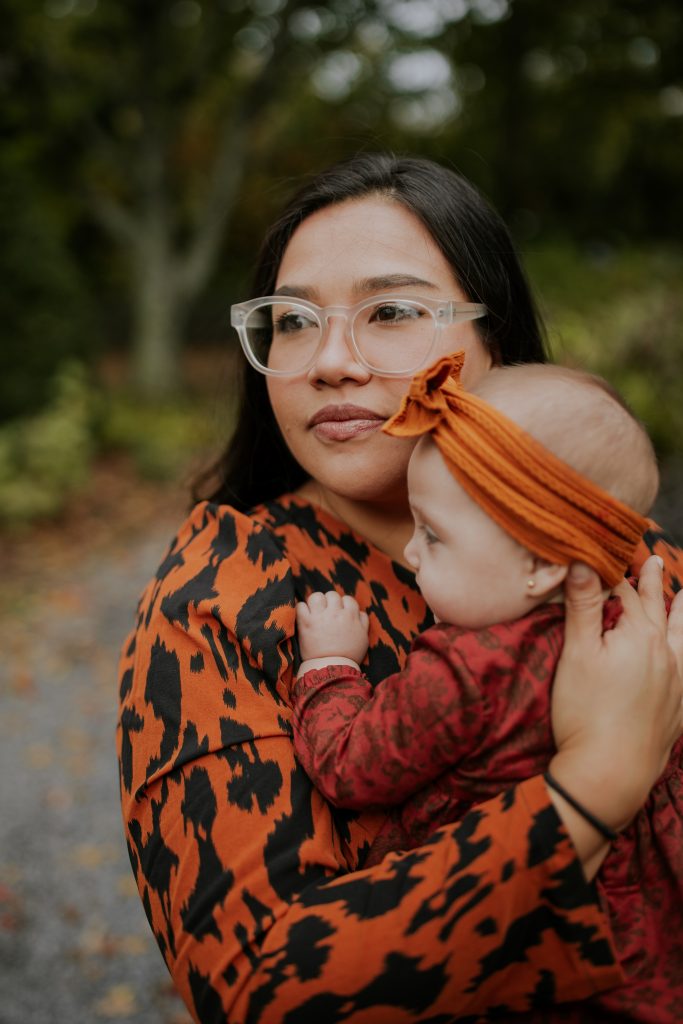
After arriving and becoming a student at the Connect Language Center, she saw a sign for World Relief Memphis. At the time, the CLC was not located in the same building as World Relief Memphis, so Diana did not immediately know they were connected. Knowing what World Relief did, Diana went to her teacher and shared about her situation and was then able to be connected with services.
Diana was then enrolled as a client in the Connect Language Center and Economic Empowerment service lines. This helped cover the cost of her classes and aided her in job readiness and placement as well as budgeting.
Right away she wanted to get back to accounting work, but she knew she needed to develop her English skills first. Continuing at the CLC, Diana proved to be a dedicated student. “What I loved was the English classes.” New to the city without many connections, she enjoyed the comradery, diversity, and fun group experience of learning and growing together in the classes. “I really love World Relief because of the diversity. I love to meet people from around the world and work with them and take classes with them. I was able to make friends with people from Africa, Turkey, Mexico, Brazil, and Afghanistan. I have gotten very very good friends from classes.” Diana felt safe, she was even able to find housing through making friends with another woman in her class! They ended up being roommates for two years, before Diana met her husband.
“I really love World Relief because of the diversity. I love to meet people from around the world and work with them and take classes with them.”
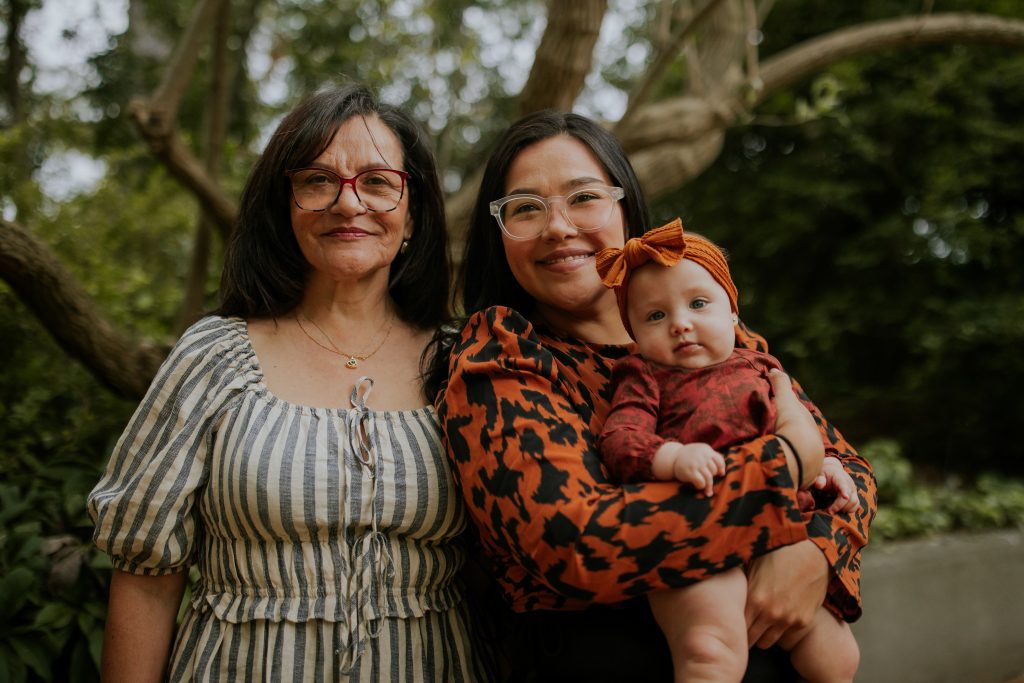
After settling in to her life here in the U.S., Diana wanted to give back, and so she started volunteering. During the early days of COVID-19, the Memphis office worried about how to reach clients and their communities with updates and safety information. An idea then came about to have community ambassador Instagram accounts of which Diana ran the Spanish community account.
She also came alongside World Relief Memphis in helping with Cuban clients in a program called “Club Cuba.” Every Friday, Diana and other WR staff would go through presentations teaching newly arrived Cubans about things they needed to learn about living in the U.S. and in Memphis. They walked through the American health system, child care, transportation, job readiness, financial literacy, and much more!
Throughout her whole experience Diana shared how her faith was her rock.
“Before I made the decision to come here, I was in a very bad situation emotionally because I didn’t know exactly what to do. And I said, “God, you have to lead me to what I am going to do, because I don’t know if this is the right thing to do.” And then I came here, and I had the door open to me, and I knew people loved me and showed me that I am in a safe place. I think God put those people in my life. It (her faith) has been everything.”
Now, almost seven years later, Diana is married, is a “full time Mommy”, and looks to a whole new future ahead. She has dreams of raising her daughter to be strong and independent and be a good example for always trying your best. She still has her passion for accounting and one day hopes to be a business consultant helping with project management.
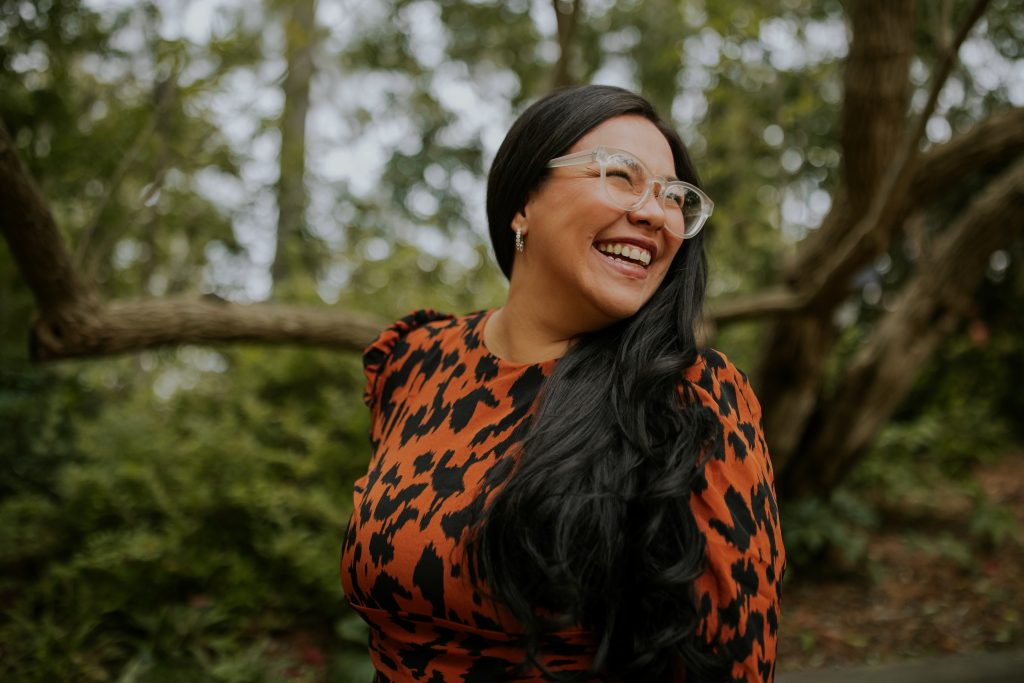
We are so grateful for Diana. Her example of perseverance, bravery, and heart for giving back reminds us of the importance of this work daily. Here at World Relief Memphis, we have seen Gods faithfulness these past ten years through the support from people like you. We thank you for joining us on our journey in making Memphis a more welcoming community.
If you were inspired by Diana’s story and want to know how you can partner with World Relief Memphis, check out our “get involved” page for more volunteer information today!

Writer: Kara Spencer
Communication Coordinator at World Relief Memphis, graduate of Harding University, & Memphis native.
Photo Credits: Emily Frazier
If you would like to learn more about World Relief Memphis in the coming months, follow us on social media and sign up for our newsletter to stay up to date on events and volunteer opportunities.
If you are searching for an opportunity to begin making a bigger impact, join our new monthly giving program, The Path, for exclusive updates, virtual events, prayer chains, and stories of hope from the women, men, and children whose lives you change.
What’s Happening in Sudan?
By now, we know you’ve seen the news coming out of Sudan. On Saturday, April 15, heavy fighting broke out between two military forces under the command of General Abdel Fattah al-Burhan (SAF) and General Mohammed Hamdan Dagalo (RSF), also known as General Hemeti.
While the fighting started in Khartoum, Sudan’s capital city, it has since spread throughout the country causing food, fuel and water shortages in some areas.
Here’s What’s Happening Now
As we’re writing, at least 512 deaths and more than 4,200 injuries have been reported. These numbers are growing daily.
We’re grateful to report that all of our in-country staff are safe and accounted for. They are sheltering in place and checking in on one another while they wait for the fighting to subside.
At this time, humanitarian activities have been paused to keep staff from World Relief and other NGOs safe. USAID has set up a rapid response team in Nairobi to assess the situation and provide emergency aid to people fleeing into the neighboring countries of Chad and South Sudan.
As you might recall, World Relief recently opened its newest office in Chad. The location of our office there puts us in close proximity to Sudanese refugees who are fleeing. At this time, we do not know if a response in Chad will be possible, but our teams are monitoring the situation and staying open to needs as they arise.
Why is This Happening?
This current conflict can be traced back to April 2019 when Sudanese protestors peacefully took to the streets and removed former President Omar al-Bashir. Following the coup, a military-led council took power, prompting another series of protests which have continued into the present day. We shared more about this in a previous post about some of our world’s most neglected crises.
While the latest conflict is most certainly a setback for Sudan, we remain hopeful and committed to long-term development in Sudan and have a long history of working alongside local partners there. Josh Meares, World Relief Sudan Country Director said:
“We do not know what the future holds for Sudan… It is a nation that deserves better than this, and we have a great staff there who are capable of leading the country into a better future if given the chance. We will continue to stand together with and for the most vulnerable.”
Why Does This Matter to Me and World Relief?
Sudan has long been a crossroads between the Middle East and Africa. Though rich in cultures and resources, decades of colonization, civil conflict and climate disasters have made Sudan one of the most vulnerable countries on earth.
Prior to this most recent conflict, 3 million people were already living as internally displaced in Sudan, and 15 million were at risk of acute food insecurity. The return to conflict is likely to exacerbate an already difficult situation for people experiencing the greatest vulnerability.
World Relief has been on the ground in Sudan, working to address these problems since 2004. Outside the U.S., Sudan is our largest country of operation with more than 345 staff who are committed to building flourishing communities and moving lasting change forward.
In 2022 alone, the team reached more than 533,000 men, women and children in Sudan with life-transforming resources, training and care.
It Matters in the U.S., Too
Not only does World Relief work in Sudan, but we have a rich history of welcoming refugees from Sudan to communities across the United States.
You may remember reading about people like Darelsalam who came to the U.S. when she was 14 years old, or Ibrahim who arrived in North Carolina after being separated from his family for 10 years.
Over the years, World Relief has welcomed more than 2,000 Sudanese refugees to the U.S. — this number includes people from both Sudan and South Sudan, which gained independence in 2011 — and we currently have many Sudanese staff who work across our U.S. offices. Here in Memphis, there is a large Sudanese community which we serve and work with as well.
Much like the conflict in Ukraine, our connections in Sudan stretch across oceans, reminding us that the lives we live and the challenges we face are deeply connected and inextricably linked. We are grateful for the ways you have joined us in praying for Sudan and ask you to continue praying in the midst of a situation that is changing daily.
Here’s how Memphis has Helped Ukraine in the Past Year
MEMPHIS, Tenn. — One year ago from Saturday, the world woke to news that Russian missiles were hitting Ukraine’s capital city. In many ways, the world changed.
It soon became obvious Russia spectacularly underestimated Ukraine’s will to resist. For over a year now, Ukrainians have been fighting. Over the past year, families have lost loved ones as well as left everything behind to seek refuge outside of their home country.
Here in Memphis, local organizations like World Relief Memphis; 901 Stands with Ukraine and Grace Even have been doing what they can in order to provide aid to Ukrainians.
World Relief Memphis — in partnership with 901 Stands with Ukraine — have recently helped from 40 to 50 Ukrainian refugees in Memphis with the goal of finding work as well as housing for these families.
5 Things You Should Know About the Earthquakes in Turkey and Syria
Early in the morning on February 6, massive earthquakes hit Turkey and Syria. For many of us who live thousands of miles away from the devastation, it can be hard to imagine the profound scale of loss — and even harder to know how best to respond.
And yet, if you’re like us, your faith compels you to respond.
At World Relief, our mission is to empower the local church to serve the most vulnerable. When natural disasters like this one occur, those who are already in vulnerable situations are put at even greater risk. By responding together, we can extend the love of Christ to those who are suffering in their greatest time of need.
That’s why we’ve shared five things you should know about what’s happening in Turkey and Syria, why we at World Relief are responding and how you can join us in praying for and serving those who are suffering.
1. How widespread is the impact of the earthquakes?
The earthquakes struck in the early morning hours in a region that has not experienced a major earthquake in over 200 years, leaving residents little prepared. As a result, the devastation has been widespread and severe.
At the time of writing, an estimated 36,187 have died in Turkey and more than 5,800 in Syria — and these numbers continue to rise. More than 5 million people across Syria are now in need of shelter while nearly a million more men, women and children are now homeless in Turkey as a result of the earthquakes. Basic infrastructure, including power and water, has been completely demolished in some areas.
The earthquake’s devastation is further compounded by freezing winter temperatures and, in Syria, decades of civil war have left residents especially vulnerable.
2. What are the greatest needs and how is World Relief responding?
As those impacted grapple with freezing temperatures, decimated infrastructure and profound loss and trauma, the greatest immediate needs include shelter, water, power, blankets, non-food and sanitary items and psychosocial counseling.
World Relief is responding on the ground through long-standing, trusted partners, including Tearfund Germany and the Integral Alliance. Our partners are connected with local churches and organizations in Turkey and Syria who can more quickly deliver aid — especially in hard-to-reach regions or where international aid may be restricted by governing authorities due to protracted conflicts.
Our local partners are working especially hard to provide assistance to the most vulnerable, including the elderly, children and persons with disabilities.
Thus far, our response efforts have included:
- Establishing mobile kitchens and distribution centers for food, water, hygiene supplies, emergency shelter, heaters, batteries, tools and more
- Operating mobile hygiene trailers that offer toilets, showers and washing machines
- Facilitating a kids club and trauma counseling center for children impacted by the disaster
- Providing mobility devices such as wheelchairs, protheses and walkers to those who need them
To stay up-to-date on how we’re responding to this and other crises around the world, sign up for our mailing list, here.
3. What will happen after the initial response?
Natural disasters on the scale of what we’re seeing in Turkey and Syria affect every facet of life. Responding immediately is essential to ensure the survival and safety of as many people as possible. At the same time, we at World Relief understand that rebuilding and restoring what has been broken — whether infrastructure or lives — takes time and commitment.
That’s why we’re beginning conversations with our trusted partners in the region to determine how we can best come alongside local communities so that they not only survive the current crisis, but can flourish and thrive in the future. In places like Syria, which have already been wracked by unimaginable conflict and loss, this commitment is all the more important.
4. Has World Relief worked in the affected region before?
Yes! World Relief formerly had programming in both Syria and Turkey which we transferred to our partners at Tearfund Germany in 2019. We continue to have a strong relationship with Tearfund Germany, allowing us to respond quickly and effectively through our partners who are still at work in the region.
Additionally, World Relief has been helping Syrian refugees resettle in the U.S. for over a decade. Members of the Syrian community in the U.S. have become our coworkers, neighbors and friends. We are grieving and praying alongside them at this difficult time.
5. How can I help?
- Pray: As in all things, we first turn to prayer. Pray for those who are still missing to be found, for the injured to be healed, for the hungry to be fed, for the cold and weary to find shelter and for the grieving to be comforted. Pray also for those responding to do so with wisdom and endurance.
- Give: You can rush help to Turkey and Syria by giving today. Your donation will support our partners at work in the region, ensuring more help can reach more people in this time of great need.
- Share: As the news cycle moves on to the latest headlines, you can help keep Turkey and Syria in the prayers of your friends, family and neighbors by sharing what you’ve learned in this blog.
7 Ways to Love Your Neighbor
In Rwanda we have a saying — “Ifuni ibagara ubucuti ni akarenge.” This literally means, “a hoe that cultivates friendship is a foot.” In other words, we love our neighbor by visiting them and helping if they need anything.
No matter where you live, loving your neighbor is an integral part of our call as Christians. Having served alongside local churches in Memphis and Rwanda, we have seen first-hand how loving your neighbor comes in all shapes and sizes.
In some places, loving your neighbor might mean sharing baked goods. In another, it may mean dropping by unannounced for an afternoon tea. And still, for others it could mean fetching water or making bricks for a neighbor who is building a house. Yet, no matter where you live, one thing remains the same: We love because God first loved us. That’s why today, we’re sharing 7 Ways to Love Your Neighbor.
1. Take the Initiative and Value Small Acts of Kindness
Helping one another without being asked to do so is part of the culture in Rwanda. And doing something for your neighbor does not always require much. If your neighbor is sick, you could visit them, deliver groceries to them or take them to the doctor when necessary.
In rural Africa, if a neighbor is building a house, you could lend a hand by fetching water for them, making bricks or finding wood. In short, loving your neighbor is in action more than words.
2. Spend time
Quality time is said to be one of the five major ways people experience love. That’s true no matter who you are or where you’re from. When refugee families first arrive in the U.S., many often feel isolated with no family, no community and no means of transportation. Even if there is a language barrier, the simple act of spending time with our neighbors can make a world of difference. Whether you pop in for a tea or a walk, just knowing that someone cares and that they are not alone allows refugee families to feel the love of Christ through our actions.
3. Share a meal
Sharing a meal is perhaps one of the best ways to show our love for our neighbors. Whether it’s at your home or theirs, breaking bread together meets not only a physical need but also the mental and spiritual need for relationship.
No matter where you live, meals are an opportunity to connect, sharing our own culture while experiencing someone else’s. Especially for many refugees rebuilding their lives in the U.S., sharing a meal also demonstrates respect and interest in their life and culture, something that may often be overlooked in their new home.
4. Foster Reconciliation
Loving your neighbor can encompass more than lending a hand. It’s also reconciling relationships. In some Rwandan communities, church members often disregarded people from other denominations, sometimes to the point of viewing them as non-believers and refusing to work together.
After being trained by World Relief, church leaders, volunteers and program participants are reaching across denominational lines to adopt a culture of loving their neighbor by acting together. They’ve realized that together, as a unified body, they can accomplish much more, and they’re seeing ripple effects of love, joy, peace and harmony across whole communities.
Ask yourself — is there someone I can love by moving toward reconciliation and forgiveness? Is there someone I disagree with politically or denominationally that I can build a connection and a friendship with?
5. Listen
Paying close attention and listening to what your neighbors are saying is so important. We may have had very different upbringings and viewpoints, but we are all made in the image of God, and each of us has a story to tell. By listening to that story, we’ll learn new ways in which we can be intentional with our neighbors, showing them that they are welcomed and loved.
6. Advocate
While loving our neighbors on an interpersonal level is who we are called by Christ to be, sometimes systemic injustice is at the root of a problem, and loving our neighbor means advocating with them as well.
Advocacy is speaking up with those who are vulnerable to address the underlying causes of injustice by influencing the policies and practices of people in power. By starting with the reality of “what is,” we can leverage our voices to make systemic changes that lead to a vision of “what should be.”
7. Go Together
At World Relief, we believe we can accomplish so much more when we go together. In the U.S., our church partners form Good Neighbor Teams who work together to welcome and serve their new immigrant neighbors by taking them to appointments, picking up groceries or fostering friendships over lunch or dinner.
In places like Rwanda and Haiti, Outreach Group volunteers pair up to visit the homes of struggling families. Outreach Groups give local churches the opportunity to intentionally engage the community in a consistent way at a wide scale. Ordinary church members are equipped to do what Jesus taught and did — reaching out to their neighbors to share messages that lead to holistic development and facilitate relationships.
If you’re considering reaching out to a neighbor or participating in a service project, why not ask someone to join you, so this movement of love can grow further?
Living justly and loving our neighbor is better when we do it together. Share this article with a friend and invite them to join you in loving your neighbors this week.
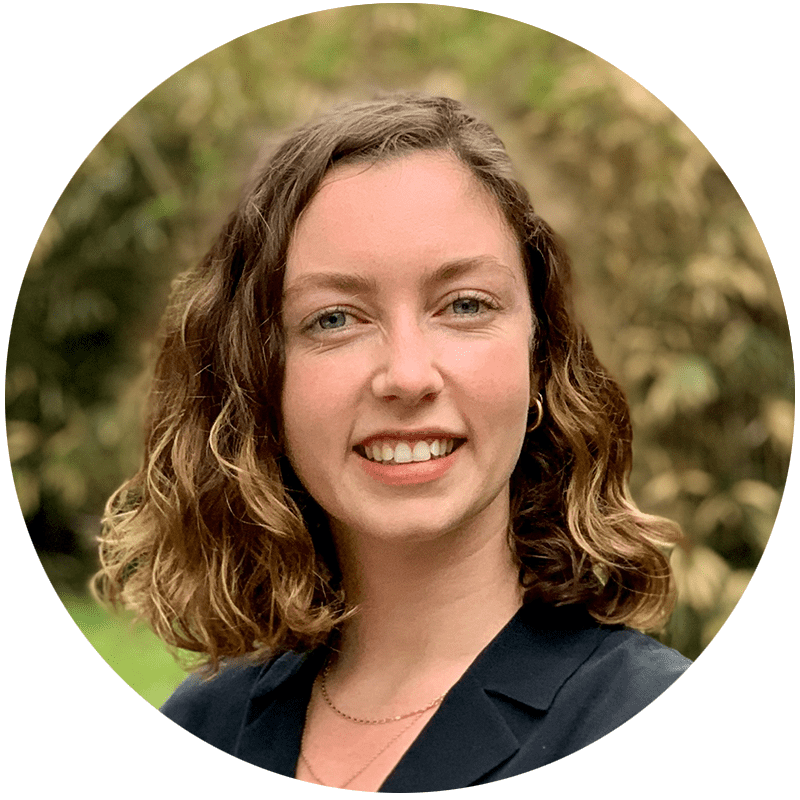
Bailey Clark served as the Communications Coordinator for World Relief Memphis. With a background in journalism and advertising, she is passionate about storytelling and its power to make a difference.

A pioneer in the documentation space, Emily Kankindi is the communications and documentation unit coordinator at World Relief in Rwanda. She started with World Relief in 2005 and has been growing through different stages while pursuing a career in creative communications with a passion to tell the story of impact. Driven by a mission to serve the most vulnerable, Emily is best known for inspiring others to care and serve the needy by using all possible means of communication to promote and call forth positive ramifications of WR interventions in all aspects of life. Her educational background is marketing and travel operations.
9 Things You Need to Know About Private Sponsorship
On Thursday, January 19th, the Biden Administration announced a new private sponsorship program for refugees called Welcome Corps. Through Welcome Corps, everyday Americans can directly sponsor refugees who are being resettled in the U.S.
Today, there are an estimated 103 million displaced people globally, including 32.5 million refugees. Forced from their homes and separated from support networks, refugees are among the world’s most vulnerable populations.
At World Relief, we know you want to live out Jesus’ call to welcome the stranger and care for those experiencing vulnerability. Private sponsorship builds on World Relief and other refugee resettlement agencies’ existing opportunities to welcome newcomers and is one more way you can answer that call. Here are 9 things you should know about private sponsorship.
1. What is Welcome Corps?
Welcome Corps is a new private sponsorship program from the U.S. government that allows groups to sponsor and resettle refugees. Sponsors will play the primary role in welcoming, financially supporting and assisting refugees for the first 90 days as they begin to rebuild their lives in the U.S. and integrate into their new communities.
2. How do I become a sponsor?
Becoming a private sponsor is a multi-step process that includes forming a group of five or more individuals, submitting an application, background checks, demonstration of sufficient financial resources and more. Currently, private sponsors can apply to be matched with someone in need of sponsorship. The U.S. government is also working to roll out an option for people to sponsor specific individuals they already know who are in need of resettlement from another country. To learn more and begin your application process with Welcome Corps, click below!
3. Who is eligible for resettlement through Welcome Corps?
Over the last year, the U.S. government has developed sponsorship programs specifically for Ukrainians and Venezuelans.
This new program expands on the previous sponsorship programs and will be implemented in phases. In Welcome Corps’ first year, the goal is to mobilize at least 10,000 Americans to help at least 5,000 refugees, and then scale up to make the program an enduring feature of the refugee resettlement system.
The first refugees who will be assisted by private sponsors through Welcome Corps are expected to arrive in April 2023 and will primarily come from countries in Sub-Saharan Africa.
For specific information regarding sponsorship for Ukrainians, click here.
For specific information regarding sponsorship for Venezuelans, click here.
4. If I become a sponsor, what will I do?
Sponsors assume responsibility for initial resettlement services, providing financial and other forms of support as required by the refugee resettlement process. Some examples of non-material support include:
- Meeting the refugee(s) upon arrival in the United States and transporting them to initial housing.
- Ensuring that the sponsee has safe and appropriate housing and basic necessities.
- Ensuring that the sponsee’s healthcare and medical needs are met for the duration of the resettlement period.
- As appropriate, helping the sponsee complete the necessary paperwork for employment authorization, a Social Security card and for any other public benefits for which they may be eligible.
- As appropriate, assisting the sponsee with accessing education, learning English and enrolling children in school.
- Supporting employable sponsees in securing employment in the U.S. workforce
- Ensuring appropriate interpretation/translation
- Providing cultural and community orientations
For more information on the sponsorship process through Welcome Corps and what’s required of sponsors, visit welcomecorps.org.
5. Is private sponsorship good for refugees?
Private sponsorship opens more pathways for more people fleeing persecution to rebuild their lives and thrive. At World Relief, we applaud the expansion of sustainable, lawful opportunities for those fleeing persecution to find safety in the U.S.
Navigating the process of private sponsorship can also come with challenges for both sponsors and refugees. But you don’t have to face them alone.
At World Relief, we have decades of experience working with refugees and displaced populations across the globe through our various local community sponsorship and volunteer programs. We utilize this experience to equip churches and passionate people like you to walk alongside those who choose to welcome newcomers and the newcomers they are matched with.
If you are interested in private sponsorship and would like to receive updates on how World Relief can support you in the process, please sign up here. In addition, we will send you a free code for our eLearning course “Navigating Friendships” which will help you learn how to build empowering, long-lasting friendships with those from different cultures. Please see question 8 regarding World Relief’s involvement in private sponsorships. Please see question 9 if you are unable to be a sponsor but want to still make a difference!
6. Has private sponsorship been done elsewhere?
Yes! Private sponsorship has been a successful piece of refugee resettlement efforts in countries like Canada and Australia, and versions of private sponsorship have even been part of U.S. refugee resettlement historically. Most recently, the U.S. has re-engaged private sponsorship models to resettle Afghans, Urkanians and Venezuelans. This new program expands private sponsorship to include refugees from around the world.
7. What about traditional pathways to refugee resettlement? Will refugees continue to be resettled by World Relief and other agencies?
Yes! The U.S. federal refugee resettlement program will continue to operate and World Relief will continue to offer various ways for churches and individuals to engage in welcoming refugees and other immigrants in vulnerable situations. Private sponsorship will complement the work already being done by organizations like World Relief, allowing more people fleeing persecution to find safety in the U.S.
8. Is World Relief assisting with private sponsorship?
Currently, World Relief provides other community sponsorship opportunities — such as our Good Neighbor Team program — through our local office and is not administering the private sponsorship program directly.* However, we do have resources available to serve both sponsors and those being sponsored.
The World Relief Workshop is our e-learning platform designed to equip individuals, groups and churches to best serve their refugee neighbors — from courses on navigating common barriers to ESL tutoring. Many of our U.S. offices are also able to offer services to sponsees such as English classes and immigration legal services.
9. I’m not ready to become a private sponsor. Is there anything else I can do?
Yes! As mentioned, World Relief works with refugees and displaced people in the U.S. and all over the world and offers the opportunity to welcome and walk alongside refugees and other immigrants through local volunteer and sponsorship programs.
You can support this work by volunteering with World Relief Memphis or making a donation to World Relief. Your gift will allow World Relief to provide job training, legal support and more for immigrants and refugees in the Memphis area from countries like Ukraine, Afghanistan, Venezuela, Iran, Myanmar and other parts of the world. Together, we can extend welcome and help people rebuild their lives here in Chicagoland.
Have additional questions?
Please email volunteermemphis@wr.org We would love to connect and help you know how to make a difference!
*To receive updates on World Relief’s involvement with private sponsorship + a free Workshop course, sign up here.
Healing For the Nations
Hope, peace, love, & joy. The Advent season is a time for us to hold these things in the tension in which we find ourselves. Christ has come and Christ will come again. Scripture provides vivid pictures of how God’s goodness and life is all around us at every moment. He also promises us a reality yet to be fulfilled. This truth tends to meet us all a bit differently in light of what we have come through and what we anticipate in our future.
As we live in community with our refugee and immigrant neighbors, we see this firsthand. The urgency of waiting. The grasping of hope, striving for peace, longing for love, searching for joy. For each of us, these things feel slightly, or perhaps greatly, different. So how can we wait together in eager expectation?
In the beginning of time, God ordered his creation out of the chaotic waters and placed a garden. Eden, where humanity was born. There was a tree of life in its center that was an assurance of God’s abiding presence. In Genesis 2 we see that “a river went out from Eden to water the garden” [v.10] and from there it flowed out into the surrounding lands, bringing life everywhere it ran. God’s presence was creating and sustaining life. Like a river, his life is powerful, vibrant, and perpetual. In every way that God is moving, death becomes life and lack becomes bounty.
The prophet Ezekiel paints a similar picture when he is given a vision of God’s temple in Ezekiel 47:1-12. He describes a river flowing from the temple where God’s presence dwelt among the people, saying, “on the banks, on both sides of the river, there will grow all kinds of trees for food. Their leaves will not wither, nor their fruit fail, but they will bear fresh fruit every month, because the water for them flows from the sanctuary. Their fruit will be for food, and their leaves for healing.” [v.12] Once again, God is with us, bringing life!
In the book of John, we meet Jesus. And in John 4, Jesus meets a woman by a well. There, he declares to her and to us that “whoever drinks of the water that I will give him will never be thirsty again. The water that I will give him will become in him a spring of water welling up to eternal life.” [v.14]. Throughout his life, Jesus brought healing and restoration everywhere he went. He is our living water, as evidenced by the water that flowed from his side at Calvary when he became our redeemer, fulfilling all the law and prophets.
This thread, woven through the story of God, culminates in a vision of the New Creation:
“Then the angel showed me the river of the water of life, bright as crystal, flowing from the throne of God and of the Lamb through the middle of the street of the city; also, on either side of the river, the tree of life with its twelve kinds of fruit, yielding its fruit each month. The leaves of the tree were for the healing of the nations. No longer will there be anything accursed, but the throne of God and of the Lamb will be in it, and his servants will worship him. They will see his face, and his name will be on their foreheads. And night will be no more. They will need no light of lamp or sun, for the Lord God will be their light, and they will reign forever and ever.“
-Revelation 22:1-5 [Emphasis added]
Takeaways this Advent season…
This Advent, we are turning our hearts once again toward the great hope that has come into the world. As Revelation 22 tells us, we will once again see God’s presence bring life to us like a rushing river. This is the source of hope, peace, love, joy, and life that powers our love for our neighbors and our desire to see us all transformed together. Though our weariness comes in different forms, our restoration comes in one form—the Savior, who is Christ the Lord. So we, along with every tribe and tongue and nation, can celebrate the coming of our King, the river of eternal life, the vine whose leaves provide our healing.
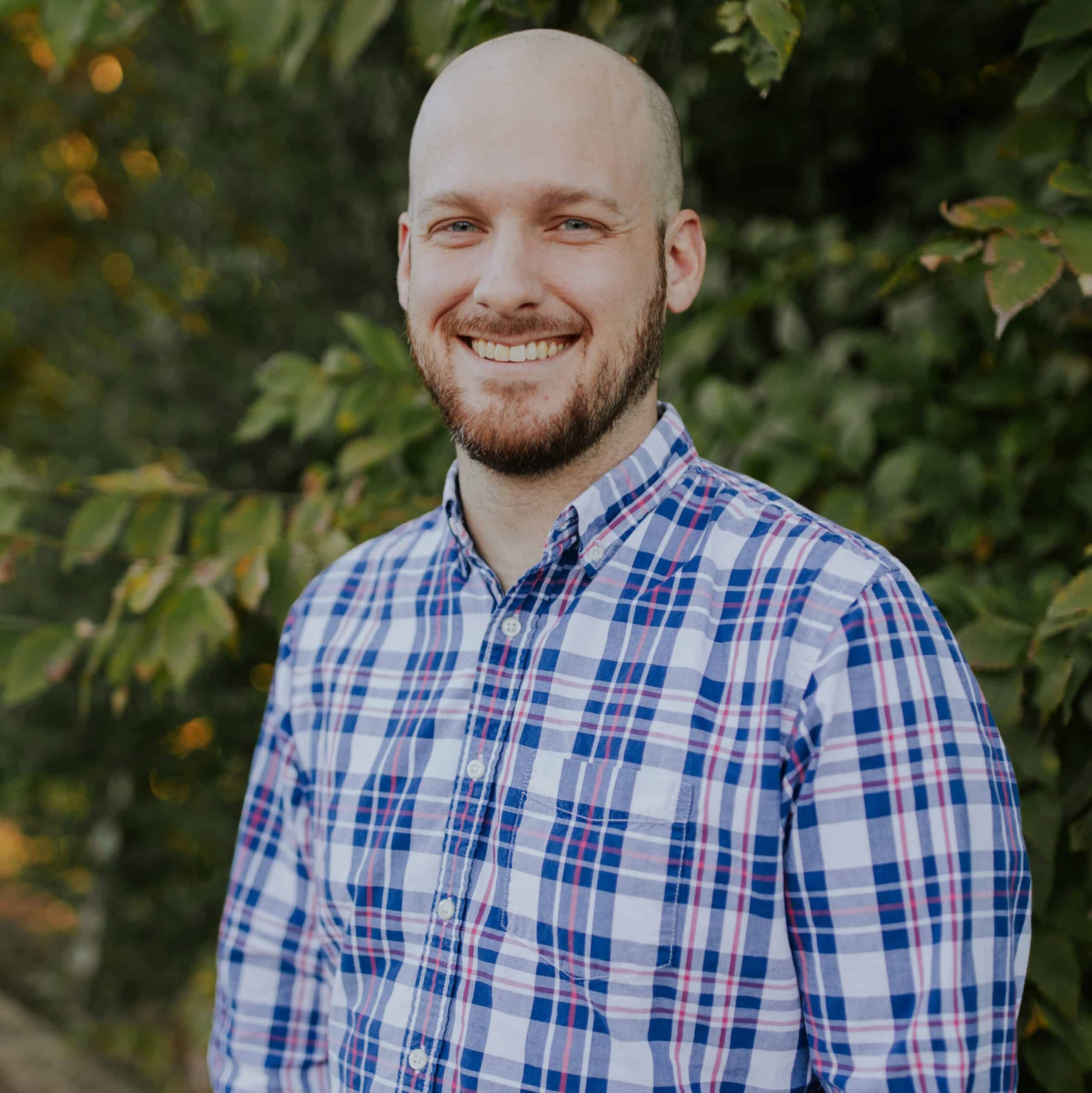
Writer: Carter Brinkley
Volunteer Coordinator at World Relief Memphis
If you would like to learn more about World Relief Memphis in the coming months, follow us on social media! Also, sign up for our newsletter to stay up to date on events and volunteer opportunities.
If you are searching for an opportunity to begin making a bigger impact, join our new monthly giving program, The Path, for exclusive updates, virtual events, prayer chains. You will also see stories of hope from the women, men, and children whose lives you change.
10 years of World Relief Memphis: Hussam’s Story
Over the ten years World Relief Memphis has been in operation, we have had the privilege of serving hundreds of refugees, asylees, and other vulnerable immigrants. Over the past couple of months, we reached out to some of the first families and individuals we welcomed, to our newest arrivals.
Hussam and his family’s story is one of miracles. Originally from Syria, Hussam, his wife, and their young son Farouk sought safety in Jordan after civil war broke out in 2013. When they first left their home, they thought they would only be gone for a few months, but quickly realized that would not be the case. While in Jordan, they discovered their son had a rare form of cancer in his eye. They immediately sought treatment, spending all of their money and selling almost everything they had, including Hussam’s wife’s gold jewelry. This was only enough to pay for the first treatment. After that, they had to find a way to come up with the money again for the second treatment only 21 days later. “That day I can say was a very horrible day. I mean, it was the hardest day during the whole journey for me.”
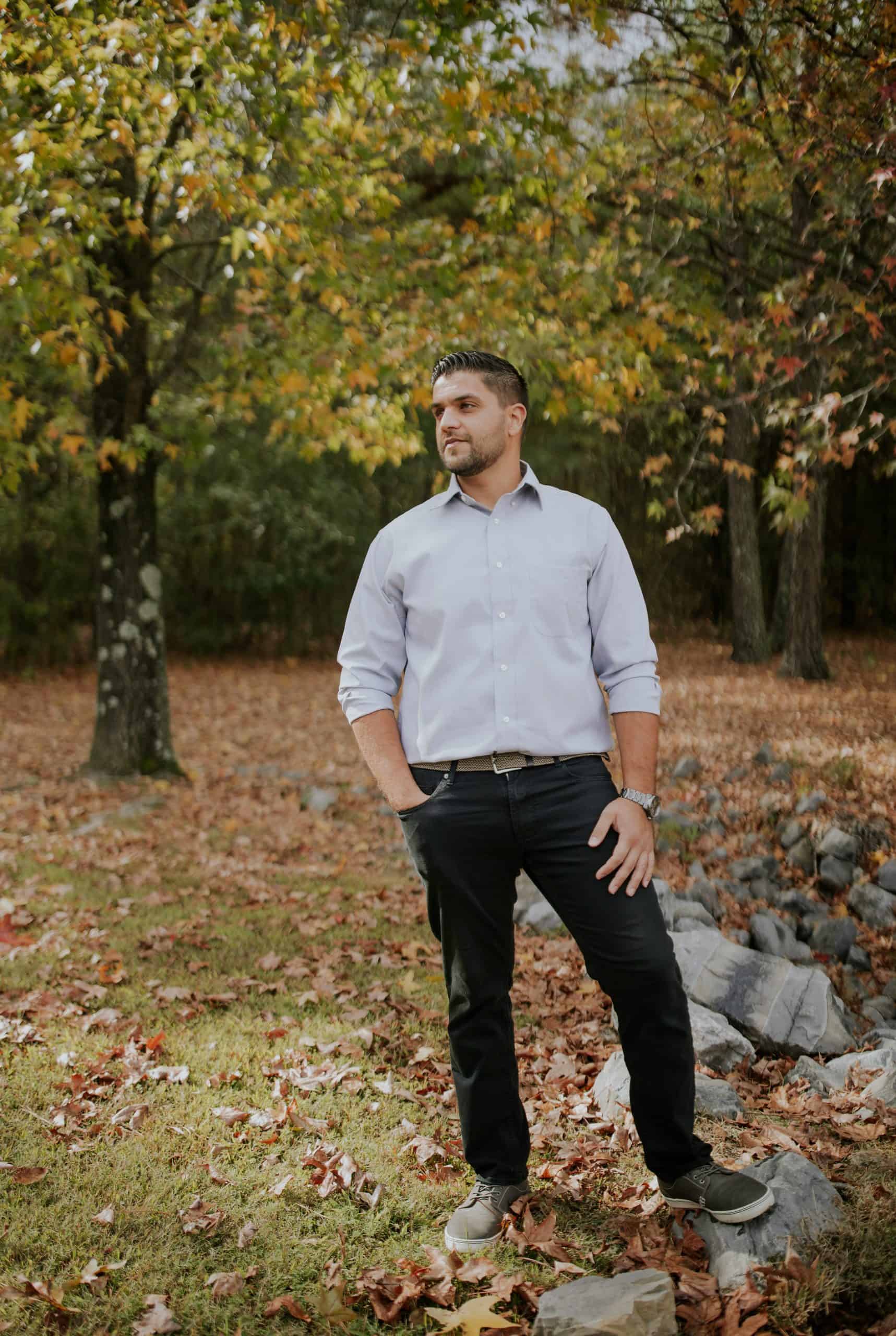
Thinking of anything he could do for his son, he reached out to the Princess of Jordan. Messaging through Facebook, he was able to share his story and she responded! She reached out to her assistant to connect with them further and they were then able to get coverage for the chemotherapy bills. While at the hospital, even more amazing things occurred. As Hussam was walking through the halls, he overheard people speaking about immigration and an organization called IOM (International Organization for Migration). Through hearing that conversation, he was able to apply for refugee status and start the process for coming to the U.S.
“I didn’t want to go to Jordan. I didn’t really want to leave my country in the beginning. But, what I found out after what happened to my son was that the hospital in Jordan was the only hospital in the Middle East that takes care of this cancer. It is a very rare cancer. My son, he was one in 5,000 cases.” Though his family did not want to leave their home, because they did, their son was able to receive the exact treatment he needed at the right time.
After his family received their status, he spoke to his son’s doctor about their situation and asked where they should try to go in America. The doctor immediately said Memphis, Tennessee. He continued to share how he had studied at St. Jude Children’s Research Hospital and that they should go there to pursue treatment once they were approved. After three years of waiting and seven chemo treatments, they were finally invited to resettle to the United States in 2016. This was only a few months before the Syrian travel ban was put in place.
“There was an apartment there ready to live in. There was food and everything we needed as a family at that time. Yeah, that was amazing.”
Hussam shared excitedly about their first day in Memphis, “The first day in Memphis was very cool. I love it. I was like, “Yay this is the United States! Where are the high buildings? Where is the Statue of Liberty?”’ We had a good laugh about that then he continued to share how the first couple months felt like a dream. World Relief Memphis was able to set them up with all that they needed in their home and connect them with St. Jude in their second week. “There was an apartment there ready to live in. There was food and everything we needed as a family at that time. Yeah, that was amazing.”
Some of the biggest hurdles after refugees are resettled is the language and transportation barrier. Even though they did not speak English when they first arrived, they were able to get a translator at St. Jude to assist them throughout the whole process. St. Jude was also able to provide transportation for Hussam and his family from their home to the hospital for all of their appointments. “They took care of everything from A to Z. They are amazing.” Now, seven years later, his son is doing great. With the type of cancer he has, it will never fully go away, but it is now in remission. Hussam then told us about his second son, born a couple of years into living in Memphis. Because of Hussam and his wife’s love for St. Jude, they named their second son Jude. The name also happens to mean “generosity” in Arabic, or “one who gives and expects nothing in return.” “St. Jude is a gift from God. It’s a grace.”
Sharing more about their first few months, he described their excitement and how they began to make friends starting with one of their Good Neighbor team volunteers, Kyle. Hussam shared that Kyle speaks seven languages including Arabic, which was the only language that he and his family spoke at the time. This relationship helped keep their family in good spirits as the initial high from arriving in the U.S. began to come down and the worry began to set in.
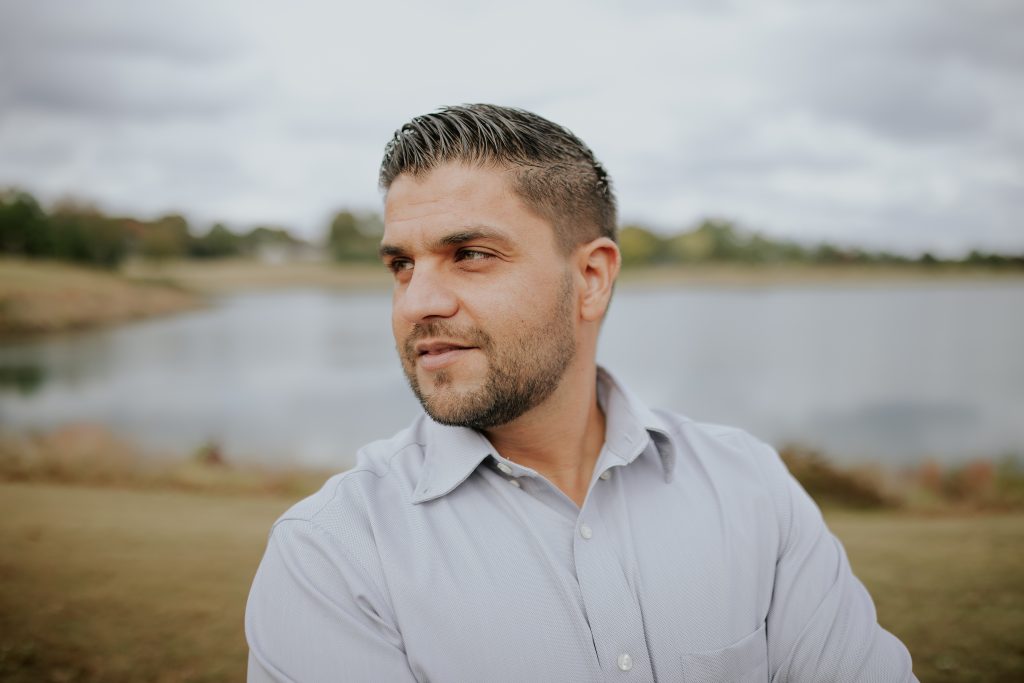
All of the bills and things that were initially put on hold were coming at them fast. He also worried about beginning to learn English and apply for jobs. While he was waiting to get a job, Hussam dedicated himself to studying English. Six months later he finally got a job. During this time, a volunteer also donated a car to the family which allowed for more freedom and flexibility.
“When I bought the house, I felt like I had a home again. A house to me is a country. I feel like my house is my country and it makes a big difference. I’m happier, more excited, and its better for my family.”
Hussam was determined to save money and provide for his family. At one point he was working three jobs to be able to save up enough money to be approved for a loan to then buy a house. In 2020 he did. “When I bought the house, I felt like I had a home again. A house to me is a country. I feel like my house is my country and it makes a big difference. I’m happier, more excited, and its better for my family.”
While talking about his process to get jobs and house he shared that “World Relief taught me how to do it the right way. Sometimes what they told me was hard or they would ask me to do things myself, but that was the right thing.” Because the caseworkers at World Relief Memphis worked with and not for Hussam and his family on things like legal paperwork, job hunting, and loan applications they were able to become independent more quickly even if it was hard in the moment.
Thinking on future plans and personal goals, Hussam is excited and eager to vote and continue to advocate for refugees. He wants to push against the misconceptions surrounding the refugee immigrant community especially for Syrians like his brother, whom Hussam is still waiting to be reunited with. Another plan the family has is travel. Now that they are citizens and have their passports, they are eager to reconnect with family. A big goal that he has is one day opening his own dental practice. Throughout his time in the dental field he has loved making people smile and he wants to be able to continue to do so as a business owner.
Lastly, Hussam shared what his dreams are for his sons. He hopes that his children understand the journey that their family has been on and all that they went through to come to America. He hopes that his children will be able to help others in their careers whether that be as doctors or something else. “I hope they can do it.”
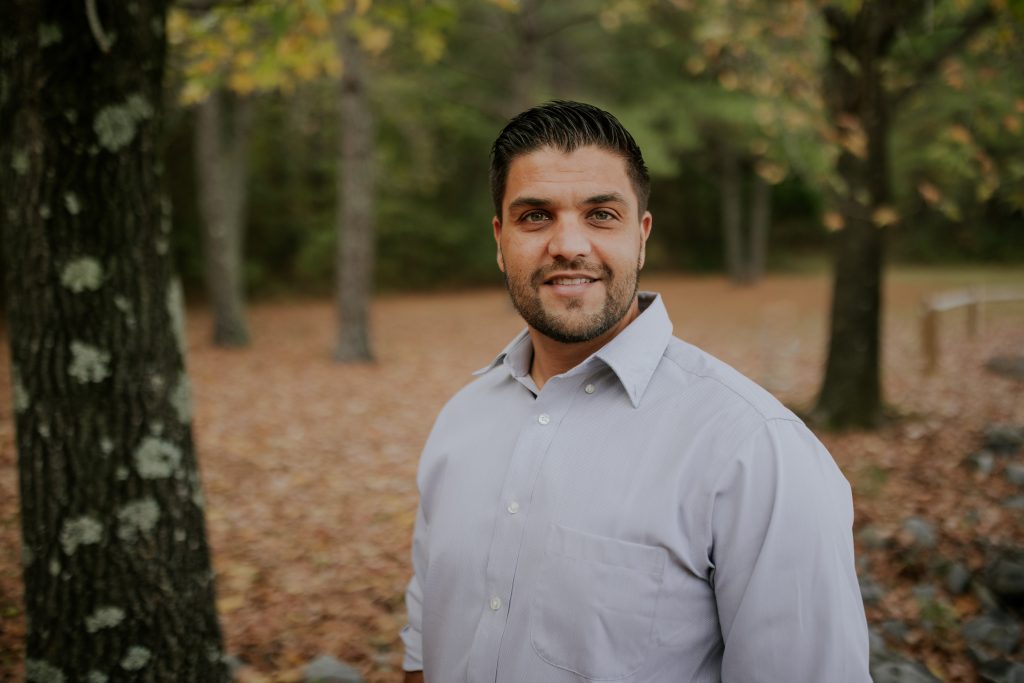
We are amazed at how clearly you can see God’s hand throughout Hussam and his family’s entire journey. We are so thankful to Hussam for sharing his story and allowing us to share it with you. World Relief Memphis has been serving in this city for 10 years because of support from people like you. We thank you for joining us on our journey in making Memphis a more welcoming community.
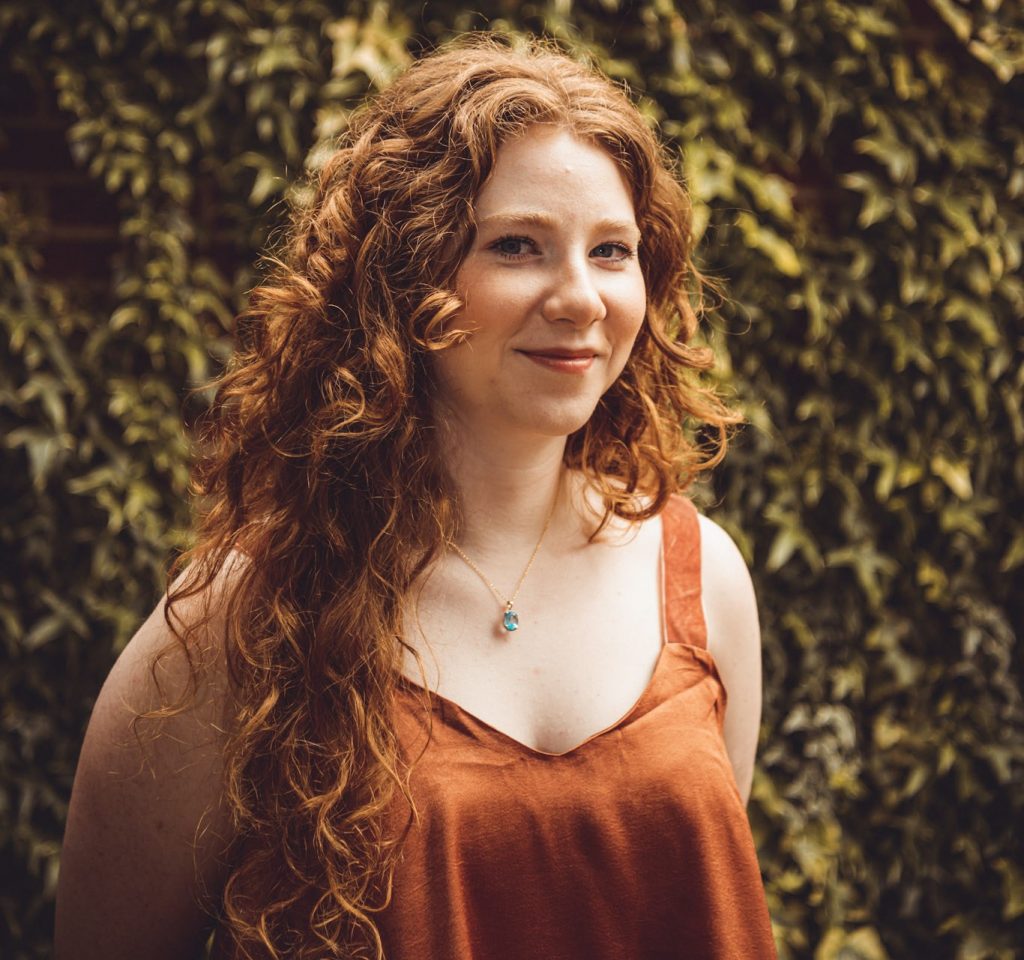
Writer: Kara Spencer
Communication Coordinator at World Relief Memphis, recent graduate of Harding University, and Memphis native.
Photo Credit: Emily Frazier
If you would like to learn more about World Relief Memphis in the coming months, follow us on social media and sign up for our newsletter to stay up to date on events and volunteer opportunities.
If you are searching for an opportunity to begin making a bigger impact, join our new monthly giving program, The Path, for exclusive updates, virtual events, prayer chains, and stories of hope from the women, men, and children whose lives you change.











